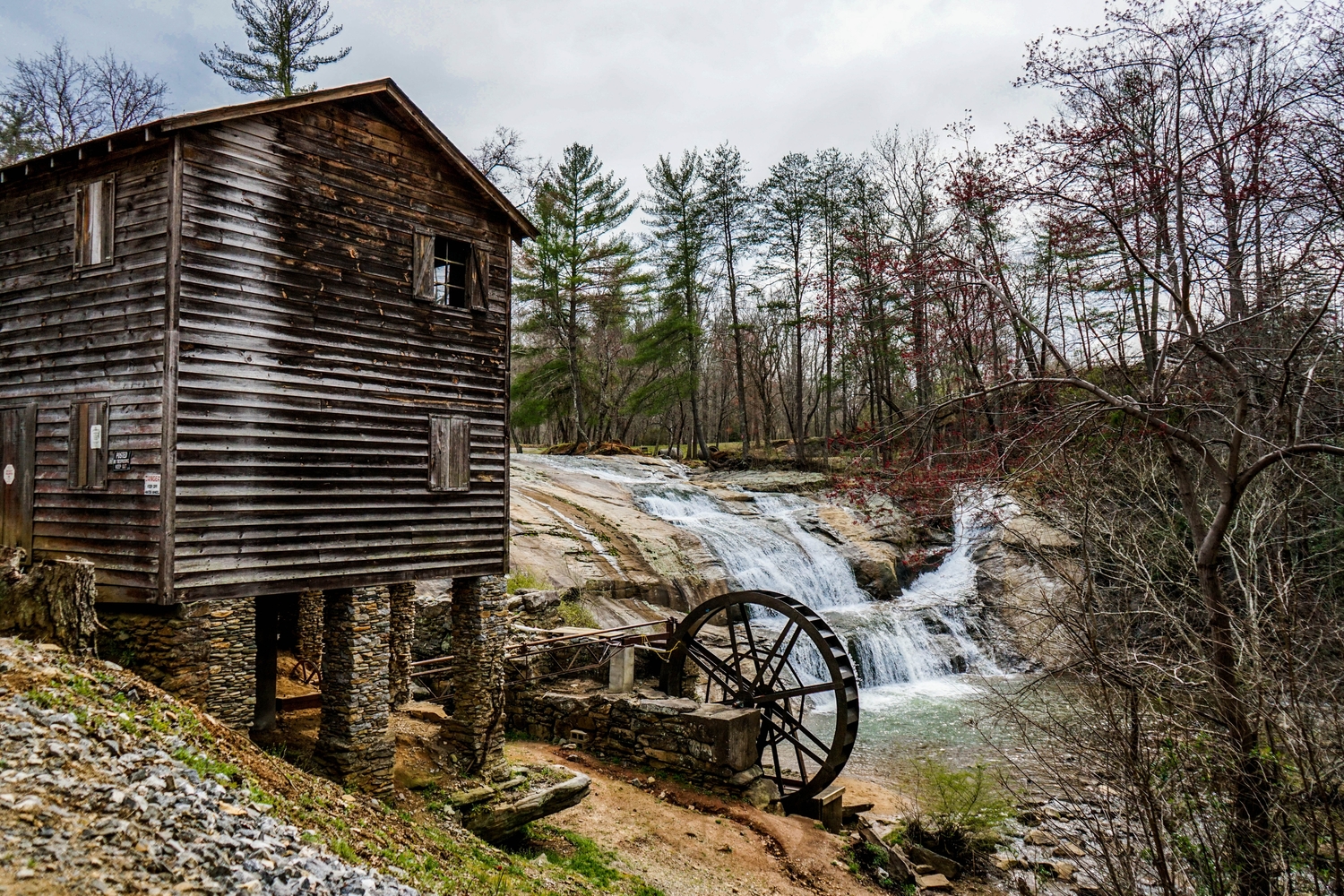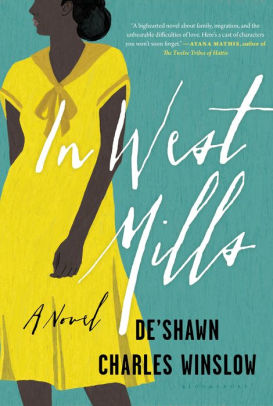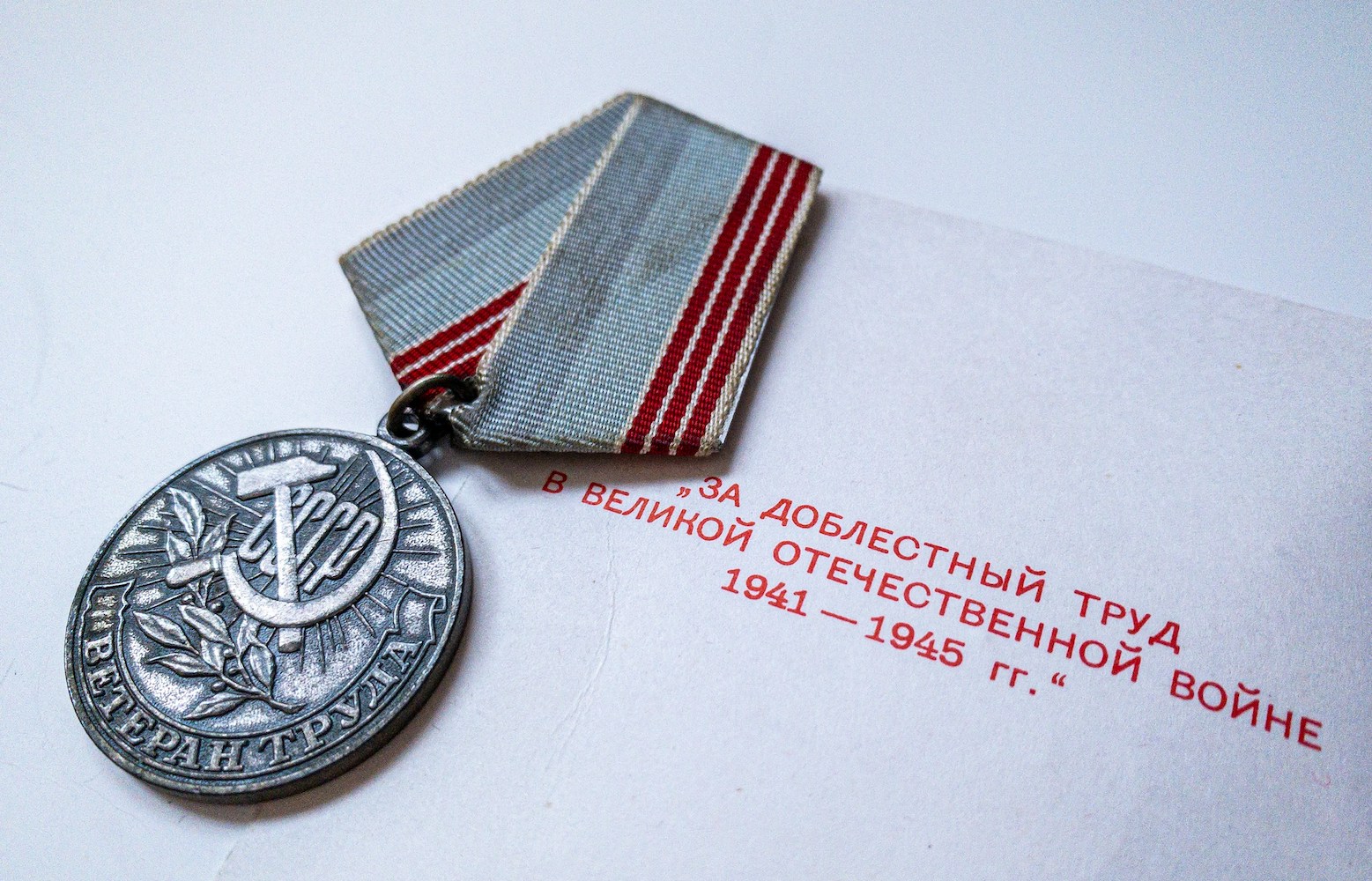interviews
“In West Mills” is a Love Letter to Black Small Town North Carolinians
De’Shawn Charles Winslow on the personality of the small communities

De’Shawn Charles Winslow’s debut novel, In West Mills, is a story full of love. No, it’s not a typical romance-focused love story; instead, it’s something greater. Winslow’s novel offers proof that love exists all around us—not only in our families, but also in our towns and communities.
In West Mills’ loveable heart belongs to the occasionally foul-mouthed and bad-tempered Azalea “Knot” Centre, a character who’s as prone to enjoy a bit too much alcohol and men as she is to want to read a 19th century novel. She and her dear friend and neighbor, Otis Lee, work together to navigate the trials of life in rural North Carolina from the 1940s through the 1980s.
It was my pleasure to be able to ask De’Shawn Charles Winslow via email a few questions about the characters who inhabit West Mills, the inescapable grip of the past, and the personality of the small communities of today.
Bradley Sides: I have to tell you that I think In West Mills is bursting with such wonderfully-written voices, and Azalea “Knot” Centre is, undoubtedly, one of the most memorable characters I’ve met this year. Do you mind talking about how she came to you?
De’Shawn Charles Winslow: Thank you, Bradley. When I was a child, I knew a woman whose nickname was Knot. She was my great-uncle’s girlfriend and very much a part of the family. Though she passed away when I was just 10 years old, I’ve never forgotten her and her uniqueness. The “Knot” in the novel was born of what little I remember I have of the Knot I knew as a boy.
BS: Knot is often obstinate and brash, but this general hardness is met with just as much vulnerability. This line about Knot near the beginning spoke to me: “Knowing she wasn’t ready [for motherhood] didn’t mean she liked not being ready. But it felt safe to her—the only kind of safe Knot felt all right with. Safe by not having to worry about hurting a child’s feelings, the way her mother had hurt hers. Safe by not becoming someone’s wife just to figure out, years later, that she didn’t want him. Safe to get a bit of joy from the moonshine—something that couldn’t hurt her or be hurt by her.”
Does she present herself as being so tough because she feels like she has to? Or is there another reason—something maybe more personal for her?
The strong sense of community is what brings people back to West Mills.
DCW: Knot’s mother was so critical of her—never seeming to be proud of anything she or her sisters did. Knot was hardened by that. Even though she had her father’s love, she didn’t really have his protection. So, the tough exterior is her attempt at avoiding further abandonment or rejection.
BS: One aspect of Knot’s character that I find interesting is her fascination with the work of Charles Dickens. What is it about Dickens’ writing that attracts Knot?
DCW: Knot loves Dickens mostly because it reminds her of good times with her father. Dickens was the first author she’s introduced to by him, and it sticks. Also, all the drama in his novels is a diversion for her.
BS: I really like that—“all the drama in his novels is a diversion for her.” Knot certainly has her own share of drama (and a lot of it), and the person who helps her deal with most of that is Otis Lee.
He’s a character I think many readers will root for. He’s kind and caring. All around, he just seems like a good guy. However, he has his flaws, especially when it comes to sometimes protecting Knot a little too much and, consequently, not focusing on his own family enough. I’m curious to know what you think of Otis Lee.
DCW: Otis Lee is a very nurturing person, but he’s also naive. With Knot, he’s so blinded by his obsession to atone for what he feels was a failed attempt at saving Essie from danger, that he doesn’t see that Knot’s decision have some merit. He’s naive because he doesn’t make room for the possibility that everything Ma Noni’s story version of the story about Essie wasn’t completely true.
BS: I was talking about In West Mills to someone a couple of days ago, and I called it a love story. I mean, it’s certainly a novel that is full of love—and so much of that love comes from Otis Lee. I’ve been going back and forth, though, in my description. Do you consider it a love story?
DCW: At first, I didn’t think of it as a love story because Knot and Otis Lee have no romantic interest in each other. They’re almost like siblings, in fact. But I do feel there is a special, patient type of love that the people of West Mills—Antioch Lane, specifically—show each other. Very few of the characters stay mad with another forever.
BS: We’ve talked about some of the characters, but one we haven’t mentioned yet is West Mills. The town is a main character, too, right?
DCW: It certainly is. People come and go from West Mills. There’s something about it that won’t quite let them go. In my mind—and I hope it made it onto the page—the strong sense of community is what brings people back there, even when it had once been a place that caused sadness for them. West Mills offers the characters a safety of sorts.
BS: Thematically, this novel has some interesting commentary on time. Near the end, when Pratt returns to town, he says, “Ain’t much changed at all, is it?” Otis Lee’s reply is perfect. He says, “You in West Mills.” Their exchange made me think of that popular Faulkner line: “The past is never dead. It’s not even past.” The past haunts all of us in such interesting ways, doesn’t it? It’s within our person and our communities–always.
DCW: Absolutely! When I’m in my hometown, or in the neighboring town where my mother was raised, I see things that bring back memories of childhood and teen years. Sometimes it’s just seeing a yard where a family member’s house used to stand, or an old car that was in operation 20 years ago. A flood of memories—good and bad—come to me. And I’m almost certain they affect the way I move through the world today. I wholeheartedly agree with Faulkner’s line: “It’s not even the past.”
BS: Staying with time for a moment, I want to turn to how the role of communities has changed in these few decades. In West Mills is set in the 1940s up through most of the 1980s in rural North Carolina. While it’s certainly true that Knot’s community causes her a lot (maybe even a whole lot) of grief, her community also supports her. Without Valley, Otis Lee, Pep, and, well, West Mills, she would have lived a very lonely and likely very sad life.
Do you think today’s small communities provide that same kind of support they historically have? Or do you think we’ve lost a lot of that—and the Knots of the world have kind of fallen away because we’ve forgotten about them?
We can learn a lot from those who have been cast aside just because they don’t fall in line with what everyone else is doing.
DCW: I believe we’ve lost a lot of that. I remember when people waved at complete strangers while at stop lights. I don’t see that anymore when I visit my hometown of Elizabeth City. I also remember when people helped their neighbors raise their children. It wasn’t all that long ago. I’m only 40. But that sort of community interaction is almost forbidden nowadays. We live in a “look out for yourself” world now, in my opinion. And I definitely don’t think most people nowadays would want to be bothered with a “Knot” type of person, which saddens me. We can learn a lot from those who have been cast aside just because they don’t fall in line with what everyone else is doing.
BS: As the creator of this novel and these brilliant voices, what did you learn about yourself while writing In West Mills that you might not have uncovered if the book stayed inside you?
DCW: I learned way more about myself than imagined. The most striking realization is that, at heart, I’m a small-town person. The only problem is that I also really love a vibrant, busy-city life! What to do, what to do!









